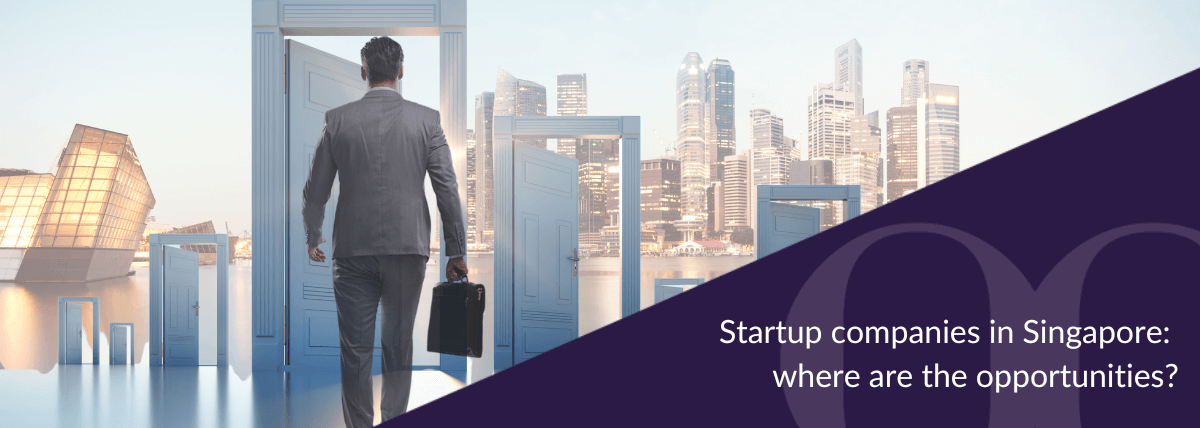In an increasingly unpredictable global business landscape, Singapore stands out thanks to its economic resilience and stability. Renowned for its robust economy, Singapore has strategically cultivated a welcoming environment for startups and businesses alike, offering a unique blend of security, consistent growth and government initiatives that foster innovation.
A straightforward regulatory framework, low corporate tax rate and a strong rule of law underscore the country’s business-friendly atmosphere. For startup companies, Singapore’s appeal extends beyond its economic prowess, as it has positioned itself as a dynamic hub for new ventures ready to capitalise on opportunities and join a vibrant business community.
In this article, we delve into the landscape created for startups and new businesses, the reasons entrepreneurs should consider establishing their startups in Singapore, and the factors business owners need to consider when registering a startup in Singapore.
Why choose to establish your startup in Singapore?
The Singapore Government actively promotes a business-friendly environment through open policies and initiatives, a relatively uncomplicated regulatory framework, a resilient free market economy, low taxes and tax incentives. It also provides a range of attractive grants for startups.
The government’s strong focus on economic development has created an environment where startups in Singapore can thrive and where foreign investors are welcome. Startups and entrepreneurs will find a supportive and innovation-led business community. As a result, Singapore has built a global reputation as a top location for international expansion. Here are just a few other reasons why it is a great place to do business:
- Singapore has a stable economy with world-class transportation, communication and technology networks and other infrastructure.
- Thanks to its diversified economy, it offers opportunities in a range of industries.
- Singapore is a global financial hub with a well-regulated and stable financial system.
- The Singapore Government has implemented incentives and policies to streamline administration and create a pro-business environment.
- Its efficient regulatory framework makes establishing a business in Singapore easy. For example, an application to incorporate a private limited company in Singapore can be approved within a day through the Accounting and Corporate Regulatory Authority (ACRA).
- Singapore has low corporate tax rates and a transparent legal system. The tax system is straightforward to navigate, with tax incentives offered to many businesses.
- Situated at the crossroads of major shipping routes, Singapore serves as a gateway to the Asia-Pacific region.
- Its multicultural environment has created diverse markets for businesses to tap into.

What is the startup scene in Singapore?
The government has proactively encouraged an environment of innovation and supports this in a range of ways. For example, the Economic Development Board provides resources and assistance to support overseas companies and individuals starting businesses in Singapore. The government has also invested in the Startup SG program, providing various services and grants to Singapore’s startups. Some sectors offering an array of opportunities that startups could consider include:

A supportive community is a hallmark of the startup scene in Singapore
Along with a variety of government-led assistance programs to support entrepreneurs and innovators, Singapore’s thriving business community has also created initiatives to foster growth. The Action Community for Entrepreneurship (ACE) helps to promote entrepreneurship, catalyse new growth opportunities, scale startups and build champion enterprises. For example, ACE’s Start-up Mentorship Program connects entrepreneurs with experienced business leaders who offer their expertise and guidance without charge.
The Singapore Women Entrepreneurs Network (SG-WEN) provides an important platform for women in business to unite, network and share experiences and insights.
The Youth Co:Lab is an example of an initiative designed for young people in business. It offers a collaborative and creative workspace for entrepreneurs to cultivate their ideas and support their business growth.
Best practices when registering your startup in Singapore
While Singapore has created a welcoming environment for new businesses, there are many compliance factors that startups and entrepreneurs must consider when incorporating a business in Singapore.
Eunice Hooi, Head of Corporate Secretarial, BoardRoom Singapore, says it is important to seek advice from an experienced, professional advisor when launching a business. “They will guide business owners through every stage of the incorporation process. They will also provide specialty advice on the different types of business structures available, and which one is best suited to the business needs. They will also take into consideration the legal and the tax implications of business ownership.”
Eunice says business owners need to consider the answers to several questions. What is the nature of your business? Are you establishing a branch i.e. an extension of your head office in another country? Or do you want to test the market by registering a representative office before you set up a permanent structure in the foreign country? A professional advisor can help you answer these questions and provide advice on the types of company structures in Singapore. They will also help you fulfil your obligations and avoid the pitfalls of inadequate planning.
Three critical aspects when establishing a business in Singapore are tax, corporate secretarial and payroll.
A professional can help you understand the tax implications of your business and decide on a structure that takes advantage of tax incentives.
Singapore also has cultural nuances and sensitivities that those unfamiliar with the business landscape might find challenging. It is important to understand and respect the cultural norms of your workforce. Ken Wong, Managing Director Asia, Payroll at BoardRoom, highlights some of these nuances: “Singapore is so diverse and there are times when you actually will need to make salary payments earlier so employees can enjoy festive holidays with salaries being paid to them in advance,” says Ken. “Singapore also has a prevalent ‘bonus culture’, with employees often expecting to receive some form of bonus at the end of the year, this is often not written in an employment contract.”

How BoardRoom supports your startup
Singapore is a politically safe, business-friendly country. Businesses and startup companies in Singapore enjoy an array of incentives and support to help them thrive. For entrepreneurs and business owners venturing into the Singapore market, understanding and respecting the local business landscape is crucial. This includes being well-versed in areas such as tax regulations, business structures, corporate regulatory requirements and payroll compliance.
Offering a range of corporate services, BoardRoom has proven itself to be a trusted partner of established and startup businesses in Singapore. We guide your business at every step and offer a range of corporate services, including corporate secretarial, payroll, tax compliance, company incorporation, accounting and bookkeeping and ESG advisory services.
Contact us to discuss how we can help you establish your startup today.
Related Business Insights
-

08 Jul 2024
Your Guide to Corporate Tax Filing in Singapore
Learn to navigate corporate tax filing in Singapore effectively and ensure timely, compliant submissions with our c …
READ MORE -

14 Jun 2024
Comprehensive Guide to XBRL Filing Requirement in Singapore
Explore the essentials of XBRL filing in Singapore, covering mandatory requirements, benefits, preparation steps, a …
READ MORE -

11 Jun 2024
Corporate governance best practices at all levels of the company
Corporate governance goes beyond compliance, shaping the fabric of an organisation. Discover the corporate governan …
READ MORE

